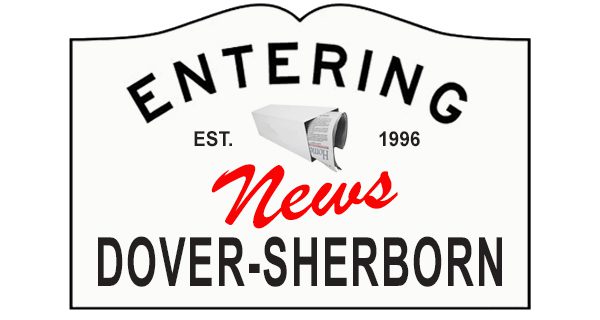By James Kinneen
Hometown Weekly Reporter
For years, Dover athletes have been facing off against competitors from Norwood, Medfield, and Medway as members of the Tri-Valley League. But now, there’s a new sports league in town that invites Doverians to compete once again against kids from those three towns - only this time, they won’t be playing basketball, soccer or baseball, they’ll be playing video games.
This year, Mark Ghiloni, the director of Dover Parks and Recreation, created the eSports MetroWest League, a multi-town video game league for kids from third to twelfth grades (3-5 is one division, 6-12 is another). But if you think the league began as a desperate reaction to COVID-19 and its social distancing rules, you’d be surprised. The league’s creation was not a result of Parks and Rec being unable do anything in person; rather, it was because whether people know it or not, or like it or not, competitive gaming is both here to stay and only growing bigger.
After (virtually) checking out some of the sessions at the 2019 National Parks and Recreation Convention in Baltimore, Ghiloni realized how much esports is playing a role in the future of parks and recreation. But while many towns were already using competitive gaming, they were mostly doing it inside one building, which Ghiloni didn’t think was feasible in Dover.
“A lot of them did in-house esports things. So a lot of the departments were creating these rooms with computers and setting up leagues, and initially that was our thought about a year and a half ago. But we couldn’t make it happen due to a variety of reasons, like startup costs and bandwidth in terms of internet. So that’s when we kind of looked at what our other options were and looked at partnering with companies that could do it all remotely.”
While some towns with large teen centers were holding informal tournaments, Ghiloni didn’t find any towns that were doing a multi-town league. And while the league is up and running right now and many towns are considering either copying the MetroWest League or joining it, he did run into some hesitation form other town Parks and Rec departments while trying to create the league.
“There’s always that hesitation - it’s something new, people didn’t know much about it - but our four kind of started things off and said 'hey, let’s go for it.' It’s a huge industry; when you look at some of the trends it’s a billion-dollar industry that’s only growing. There’s a lot of people watching it, playing it, so we felt like it was a trend that wasn’t going to go away and is something that’s here to stay. And it’s something obviously we can continue during these COVID times, it’s something we can still do when a lot of in-person programs might be limited. This is something we can kind of continue.”
Players need to have the correct console, the game itself, a membership to the console’s online system, and to register with the gaming company the league has partnered with to run it. Currently, the games include NBA2k, Madden, Super Smash Brothers and Fortnite, although FIFA may be added. Fortnite is the biggest league, mainly due to cross-console gaming, which may be a surprise to those who grew up in the anti-shooting video game era.
“At first we were hesitant,” Ghiloni noted when asked if they were nervous including a shooting video game. “When we first initially did it, we weren’t going to include Fortnite, but after talking to people involved, we realized Fortnite was super popular. So, we felt like parents could kind of make that decision. If they weren’t okay with it, then they’re not going to sign up. But what we heard from parents and kids is they’re playing it anyways on their gaming systems. We wanted to follow the game’s age guidelines, but we got a lot of kids below that age whose parents were like, ‘well my kid’s playing it anyways, can they still join the league?’"
While the league is currently in its beginning stages, with the second, winter season fast approaching, Ghiloni has hopes that it could grow into something far bigger than it is now.
“We’re looking to add some more towns. There are a few other towns in MetroWest that are interested, so I think we’ll have that conversation over the next few weeks, but I suspect we’ll be adding some more towns. And then kind of figuring out what games people want and like, which can be evolving, and figuring out timing: what times work great, what times don’t work, just small changes we can make to see how we can make it best for the community. We have had a lot of interest from the North Shore and South Shore towns who are looking to add leagues. So, the vision would be down the road that we could all get on the same page and have winners of each region play to have a champion of the whole state.”
Other ideas being looked into are finding a way to film the games, and to get enough players to start playing larger, team-based games like Overwatch and Rocket League. And while there are no current plans to begin doing so, the league could easily transition to having adults play. Ghiloni even spoke of hearing that some families played video games together as their bonding experience.
“Everyone knows soccer, lacrosse, baseball and football, but there’s been a perception - and maybe still is the perception - that video games aren’t a social activity, it’s just someone playing by themselves at home. And it’s not. Now it’s becoming a social activity. Kids that might play baseball, football or soccer are playing with someone who might not play any sport, but they both like gaming and that brings them together. So it’s really that social piece we’re seeing a lot more, where some towns might have said that’s not really for rec because they’re not being active, but then you explain to them that there is that social piece.”
Currently, the league consists of a six-week regular season, with one championship week to follow.
There have been a lot of “next big things” over the years that fizzled out, from the X Games to “Ninja Warrior,” all the way to the unforgettable early 2000’s trampoline basketball hybrid, “Slamball.” But it wasn’t long ago that the UFC was a worthless entity putting on shows at indigenous-owned casinos to duck state regulations, with “athletes” that moonlighted as bouncers, professional wrestlers and underworld criminals. Now it’s worth billions and is on ESPN every weekend.
While the eSports MetroWest League will likely never get to that level, according to Ghiloni its certainly not going to go away when COVID lets everyone return to normal. “I envision this sticking around and only getting bigger. The trend from a few years ago to now is only going upward, so our goal is to keep it going and get it evolving, to get more people and more towns involved.”

























